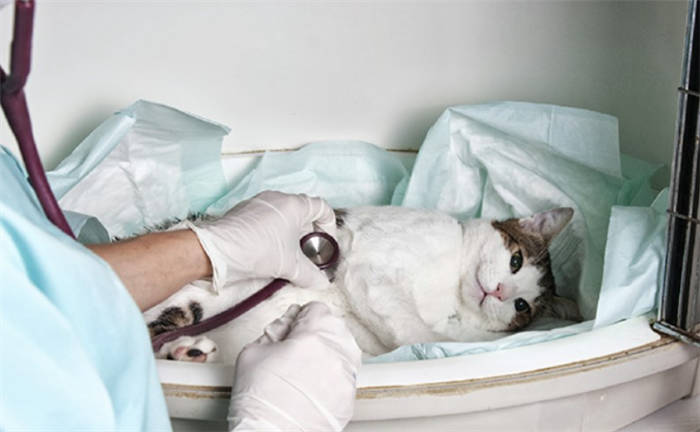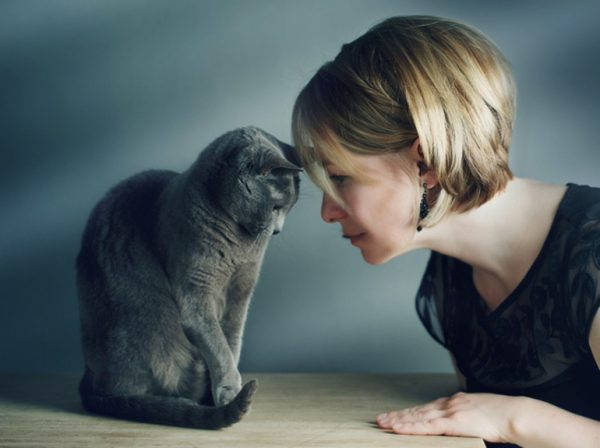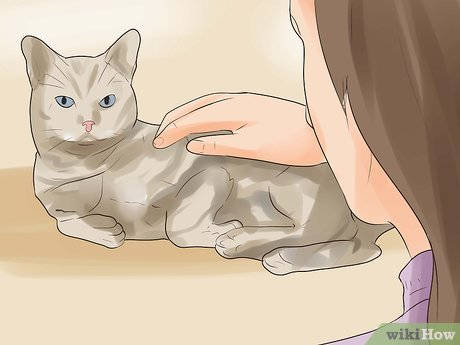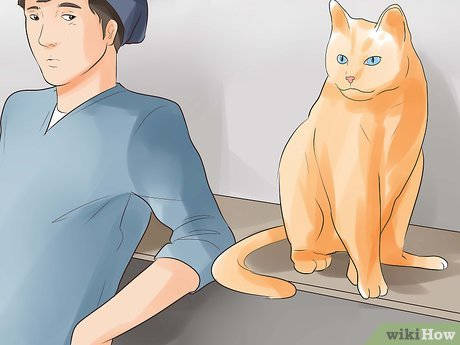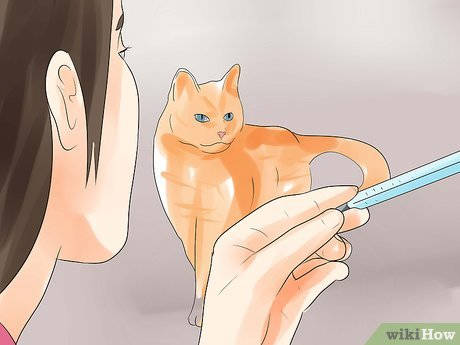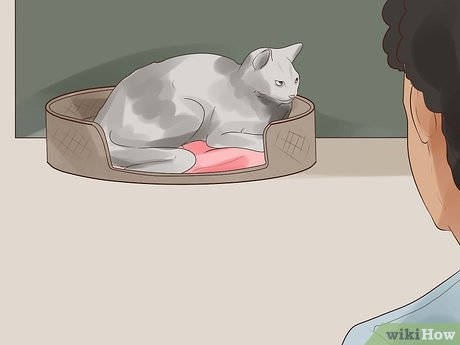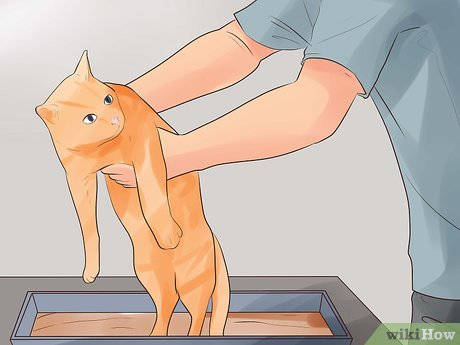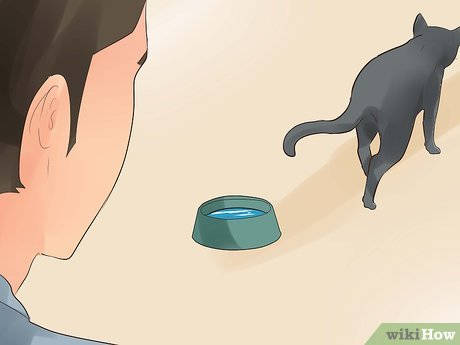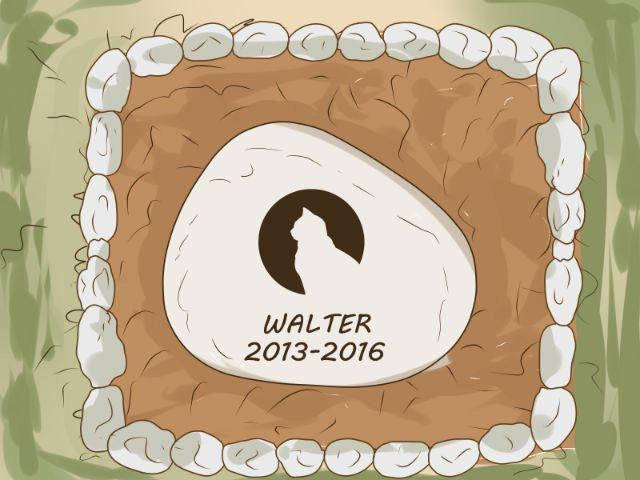For many people, a pet is practically a member of the family. Therefore, its death can be a big blow.
When a pet dies, the owner may experience different emotions such as: shock, disbelief, pain, anger, guilt, depression or anxiety. Everyone goes through mourning differently – you may mourn alone or seek support from family and friends. Remember, these emotions you are experiencing are real, and you need to deal with them in a way that works best for you.
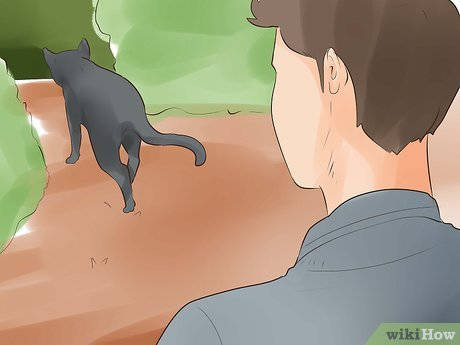
- How to know if a cat is dying
- When is putting a cat to sleep humane and when is it cowardly
- How long cats live
- Causes of death of cats
- From old age
- From illness
- Why do they go away?
- What should the breeder do?
- Putting a cat to sleep: humane or treacherous
- Testimonials from owners whose cats were in pain before they died
- What to do if the cat died
- How do cats behave when they sense their death approaching?
- Safe haven
- Caring for a dying cat: how to relieve it
- Putting a cat to sleep: pros and cons
- Signs of imminent death
- Taking care of the pet
- Signs of your cat's imminent demise
- What to do after the pet dies
- How to come to terms with the loss
How to know if a cat is dying
I don't want to talk about agony – probably everyone recognizes it by their lack of response to their surroundings, convulsions, wheezing, cries. I'm going to talk about… I don't know the right word… let's just say, suicide . . About the signs that the cat has already crossed the line of no return.
The most sure sign of imminent death is a persistent loss of interest in food. Without a regular supply of nutrients, no body will last long.
If you don't restore appetite within a few weeks, the cat will soon be gone. If she also drinks very little (which is usually the case), increasing dehydration will bring the end much closer.
- Fading is indicated by prolonged indifference to the condition of the coat.
- A dying cat's body temperature is constantly lowered (by 3 or more degrees) – this is especially noticeable by the cold pads of the paws.
- You may also see rapid breathing.
- The cat may sometimes have a foul odor – this is a symptom of failure of systems and organs.
- A dying cat becomes noticeably weaker – it no longer jumps on the couch or bed, it staggers when walking. The strength quickly melts away, and soon the animal is not even able to stand on its feet.
- Consciousness may become confused: then the cat circles around the house, not understanding what the bowl of food is for and where the litter box is.
- Sometimes the cat will meow or scream for a long time (no doubt in great pain). Sometimes, on the contrary, it goes silent forever.
But these are all obvious things when the end is near. Another thing you're probably wondering is whether there are more distant in time, perhaps unexpected, but reasonably accurate signs? There are some.
Certainly, the near-death the terminal stage of any disease. Although this is deeply individual: one animal will barely last a dozen days, another will live another few months. But when the terminal stage is certainly confirmed by a veterinarian, the cat's death is near.
When is putting a cat to sleep humane and when is it cowardly
It is immoral . to put a pet to sleep if there is no money for treatment. First of all Firstly, it is possible to find a clinic with a more affordable price, and there are many pet forums, where they offer free leftovers of quite good expensive medications. В Secondly , you can negotiate for treatment in installments. Or borrow from acquaintances. In short, one way or another to get money.
You should not immediately put a young animal to sleep if there is even the slightest chance of a cure. The young body still has enough hidden reserves, and it is very possible that a miracle will happen.
If we are talking about the elderly and seriously ill… Death from some diseases is considered particularly painful. Here are a few at risk for everyone: advanced oncology, kidney failure, liver failure. Of the contagious ones: panleukopenia, FIP. Although, when these infections are detected immediately…
Panleukopenia (If an animal is taken care of by an experienced veterinarian, there's a chance he or she could pull through. А FIP (feline infectious peritonitis) has recently been treated. A few years ago one could only dream of recovery – sick cats died long and painfully, but now there is a cure. It's not cheap, but it's worth it, because FIP is a disease of the young.
This question will inevitably occur to anyone whose pets don't leave the house. When a cat walks freely… before it dies, it's bound to go away – if it can still move around, of course. And don't believe the stories that cats can sense when they're about to die. It's more prosaic: the cat is getting weaker, and that's why it's looking for an impregnable shelter. By the way, a sick cat also hides to recover without the risk of becoming prey to its enemies.
It seems to me that residents of small towns and villages have less problems with burial. If you don't have your own plot of land, you can find a wooded area or vacant lot nearby, where the cat will find quite a decent last shelter. But remember that burying the body of the animal in the village is prohibited – by law the owner must take it to the veterinary clinic for cremation.
How long cats live
In cats, from the age of 2 weeks, a year of life is equal to 4 human life. By the way, in dogs this figure is 7 years. The average life expectancy of cats is about 16 years (80 on human account).
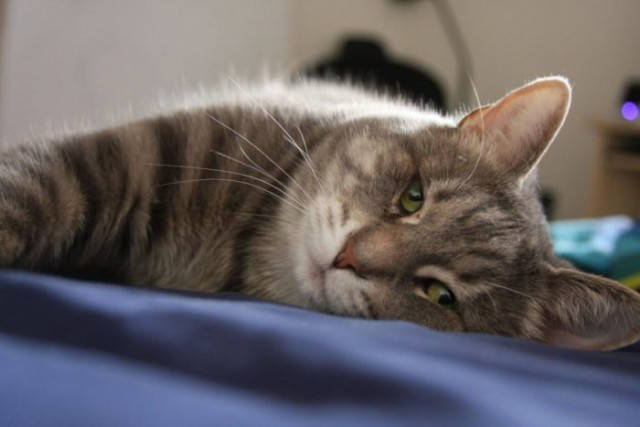
The coming of old age does not go unnoticed by the caring owner, because the animal becomes much less active, and the performance of mundane tasks is burdensome.
Causes of death of cats
The main causes of death of cats are several. First of all, it is age, illness and accidents, of which no one is immune. Like a human, a cat can die at the age of 10 years (40 by human standards) from an accident.
From old age
There have been recorded cases where pets have lived up to 26 years or more, but this is very rare. After crossing the 13-year mark, it is not difficult to know that a cat is about to die. This is a pattern of all living things in nature.
An animal becomes apathetic as it ages, does not play or frolic as before. The body's systems are slowly failing, making themselves known with pain, body lethargy and other characteristic signs.
From illness
Another possible reason for a cat to leave is from illness. In veterinary medicine, there is a whole list of diseases that most commonly affect the cat's body.
Leading the list is chronic insufficiency of the renal structures. The disease is especially characteristic of male representatives, untimely neutered. Disturbance of metabolic processes associated with the restructuring of the hormonal background after castration (removal of genital glands in cats and cats), leads to the beginning of the formation of concrements in the renal structures.
Urolithiasis is rather difficult to treat, and often becomes the reason of death of a pet as a result of dysfunctional features of the urinary system. The body is slowly intoxicated by the half-life products of biological substances.
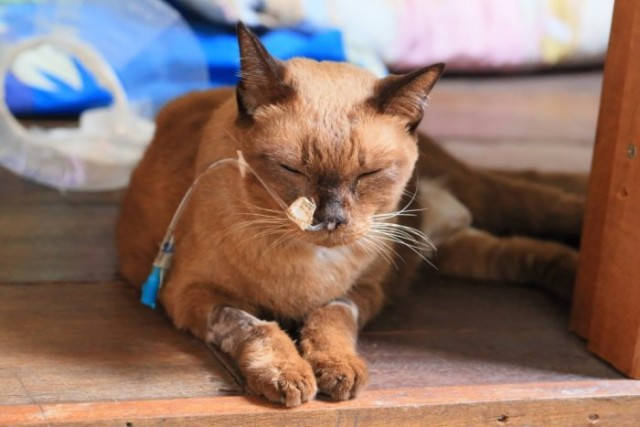
Naturally, in modern veterinary medicine chronic kidney failure is not a verdict, especially if the cat or cat is still young, and the veterinary specialist is really a professional, able to take into account the individual characteristics of the animal's body and pick up an adequate treatment regimen.
Why do they go away?
Cats that are free to go outside almost always disappear when death approaches. In packs of stray animals also, sensing the approach of death, dying cats hide. Why this happens is not known for certain, but there are several theories:
- A sense of weakness, an inability to resist attack, and pain as a danger, all of which cause the cat to flee;
- seclusion in order to heal, to come to its senses;
- unwillingness to upset the owners – pure theory, an assumption based on the impressiveness inherent in humans.
In any case, based on many years of observations, veterinary experts can say that the cat's behavior changes before death. And it is very noticeable to the owner, even if he did not have a close relationship with the pet.
What should the breeder do?
The first thing is to call the vet at home or take the dying cat to the clinic. Exactly say – is the animal dying of natural causes, or such a condition is a sign of acute disease, you can only inspect and observe the patient.

Facilitate the transition to the other world the breeder can if:
The veterinarian, after examining the animal and determining that the pet is dying of an incurable disease, or is suffering very much from pain – will offer the breeder euthanasia. In this case, the procedure is humane because it makes the cat's care easier and saves it from suffering. It is up to the owner to make the decision, but always remember that the first place should not be his feelings and bitterness over the loss of a pet, but to give the dying cat peace, to relieve him of pain and suffering.
If your cat is at an advanced age, there are signs of atypical behavior, deteriorating health – do not hesitate! Call our vet at +7 (495) 256-11-11, 24 hours a day. Our vet will see you 24 hours a day, and if necessary, you can call the doctor at home.
Putting a cat to sleep: humane or treacherous
If the cat suffers and does not get up for a long time, the owner has the right to use the procedure of putting the animal to sleep. Each person perceives it differently: some consider it a real betrayal, some – deliver the animal from its torment. However, sometimes the disease drags on, giving the cat unbearable agony. This is especially true for animals suffering from urolithiasis or cancer, in which the pet often dies in agony. In this case, the owner must do everything possible to alleviate the suffering of his or her four-legged friend. If you decide in favor of euthanasia, first ask the veterinarian if there is any other way to relieve the cat's suffering.
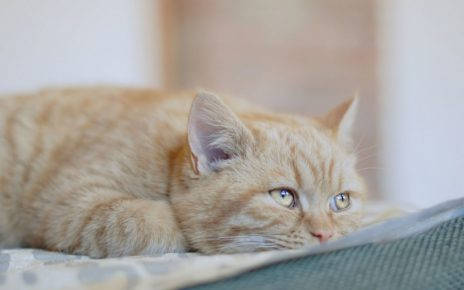
If the cat is in pain, you should ask your vet how to relieve it
Absolutely right! Of course, you shouldn't confuse humanism with self-pity. That is, you should not confuse the reluctance to put an animal to sleep for medical reasons with the inability to make a decision to do so and the guilt that follows.
Olga Zhuikova, kennel owner
https://www.svoboda.org/a/377148.html
When our cat had a fight with a dog, his jaw was broken and his internal organs were damaged. The doctor said there was nothing he could do to save him. He suggested that we put him to sleep. But I couldn't sign the animal's sentence with my own hands. It seemed to me that since the cat was alive, it could recover. The cat eventually left to die, but my conscience remained calm.
Testimonials from owners whose cats were in pain before they died
I put my cat to sleep…when I saw she stopped eating and looked sick…she was 17 years old. And if she runs why? and a good appetite? my dog (also old) has a small bump on his face and stomach. for a year and a half, jumping. I'm not taking her to sleep. as I see that it hurts and gets up with difficulty, immediately take her.
What to do if the cat died
After the death of an animal you should contact the state veterinary service. According to the law, burying a dead pet in the ground, throwing it into a body of water is not allowed. This is because it can be dug up by other animals or eroded by groundwater. And the body of water is not made cleaner by decomposing animals. In Russia, there are organizations that burn (cremate) the corpses of pets. After the procedure, they will give you the ashes of your pet, which can be buried and a gravestone placed on it.
It is important to make a quick decision about burial – on hot days it is better to contact the veterinarian immediately. If the weather outside is cool, however, burial the next day is acceptable. The vet should be contacted within 24 hours. On the spot he will determine what to do with the corpse. There are special burial grounds with biothermal pits, designed for burial or incineration of dead animals.
Digging the grave to bury the ashes should be done carefully to avoid damaging the cables that may be in the ground. If you want to have a real funeral, you can buy a coffin and perform the ceremony. It may help to cope with the loss of a close friend.
Bury it far away from crowded places and forget it. We've buried two dogs that way. Some people make headstones, hang pictures, bring food, clean up the place. I consider it unnecessary. It's a pity, but what can you do, an animal is not human.
Guest
http://www.woman.ru/home/animal/thread/3857861/
Our cat was buried by our parents near the woods. When a little puppy died in our yard (couldn't get it out), we just buried it with the girls in the yard. Then we found out we couldn't bury it there.
My 15 year old cat died tonight. She died of her own accord. She didn't suffer. she hadn't eaten anything for a week and a half, hadn't been drinking for a couple of days, couldn't get up, and yesterday she wasn't moving at all. Her kidneys were very bad and so was her heart. Tonight, she stopped breathing. It was very hard, very painful. Her body was at home all night, still is, put in a cold place. Now we are going to take her to be cremated. Hang in there, I know you're going to have a hard time. But what can you do. It's good to have a cat out of your life, not a loved one. It gives him a little strength. How he will behave in his last moments before he dies, God only knows. Ours died quietly, but for a long time. On the last day she was hardly conscious at all. Close to the moment of death, her breathing became heavy and sparse. And the jaws opened. Everything.
How do cats behave when they sense their death approaching?
Old age, the inevitable "disease"… Owners and veterinarians try by all means to make the life of a purr-fect experiencing the fall of his life more comfortable. Prolonged suffering of a cat may be an indication for euthanasia, but it also happens that an animal dies at home and not at the vet. Is it then possible to recognize a cat's behavior in the face of death and predict when this incredibly sad moment will come?
Despite the many stories that show that the animal is aware that it is going to die, most scientists believe that the cat does not understand the nature of death. A cat nearing the end of its life will be noticeably weakened, prone to illness, will experience ailments, and There will be noticeable changes in body chemistry, such as a change in scent .
A cat will notice these things more quickly than a human, as its senses are much more sensitive than ours. That's why the animal kind of notices unfamiliar changes in the body and begins to understand that they are not for the good. According to various scientific studies, despite the fact that cats are not familiar with the very concept of death, most animals are afraid of these changes. All of this is likely to be reflected in the purr's behavior before death, which will also become noticeable to the owner.
Safe haven
Different kinds of animals behave differently at times such as illness, injury, birth or care of their offspring. The cat, as a small solitary predator that larger animals may also hunt, will seek shelter at such times. It is a way of waiting out the worst moments in a place where she can gain strength and not be attacked.
For this reason, many cats who perceive changes before they die or are in pain also go to such a place to rest in peace. There is another reason why a purrfect cat may seek a secluded place in which to spend its last moments. If a cat is feeling weak and in a state of agony, it becomes very sensitive to environmental stimuli. For example, the cat hears more loudly, the light attracts more attention, it overreacts to touch and so on. For this reason the cat will hide in its own private place. It is for this reason that the cat will hide in a private shelter in order to avoid the extra attention which is tiresome.
Caring for a dying cat: how to relieve it
First of all, be sure to show the pet to the veterinarian. A specialist will help determine what is happening to the animal and, in the event of its imminent death, help individually determine the best care option. Find the right food, determine the source of pain, if any, and possibly prescribe the necessary pain medication.
The best thing you can do for your pet at this point is to make sure suffering is kept to a minimum and he gets maximum care. If the cat wants more attention than usual – try to give it. At the same time respect her wishes – don't force her into anything, even if you really want to, for example pet her. Prepare a comfortable bed in a warm place that the pet has chosen for himself at this time.
If he has mobility problems, shorten the distance from his bed to water, food and toilets if possible. Ensure peace and quiet – no parties, no guests and no loud music. All of these factors are a tremendous strain on a sick animal's mental state.
Stay calm. People's behavior can be transmitted to animals, so you don't want to stress your pet unnecessarily.
If you understand that the pet is going to die soon – try not to leave it alone for a long time. Firstly, there are cats that do not want to be alone in this situation and the presence of their owner helps them tremendously. Secondly, it is important that someone supervise the cat in case it becomes restless, its condition worsens again or it suddenly feels pain in order to be able to help it.
Putting a cat to sleep: pros and cons
Despite all the care and love you give your cat, sooner or later there will come a point when you have to say goodbye.
One option for saying goodbye is to go through the procedure of putting your pet to sleep. At the veterinarian's office, after a comprehensive examination, a specialist can help determine – how to tell if a cat is dying, signs of severe pain and suffering in the pet, and whether euthanasia is possible in this particular case.
Euthanasia can help avoid causing the cat severe pain and suffering in its last days, and this is the main argument for putting a seriously ill animal to sleep. However, if the cat is just fading away gradually – it may be better to let the pet die naturally, surrounding it with as much care as possible during this time. As cats are dying of old age it will gradually allow you to get used to the fact that the cat will soon be gone, and it may be easier to accept it.
If you decide to put your cat to sleep, the best solution is to have the procedure done at home. This way you spare your cat the stress of his last hours, and he will sleep peacefully in his own home, in familiar surroundings.
Signs of imminent death
- Place your hand on the left side of the animal immediately behind its front paw.
- Use a stopwatch or smartphone to count the number of beats for 15 seconds.
- Multiply this number by four to find the number of beats per minute. Evaluate the result to see if it is normal or not.
- An overly weakened animal also has a drop in blood pressure, but special equipment is needed to measure it.
- Sit near the cat and listen to his breathing. Watch how its belly rises with each breath and falls with each exhalation.
- Use a stopwatch or smartphone to count the number of breaths you take in 60 seconds. [3] X Source of Information
- If breathing is rapid and labored, or if the animal is breathing too weakly and shortly, this may indicate the end is near.
- Use a thermometer. If you have a pet thermometer, use it to measure the temperature in your pet's ear. Otherwise, you can use a rectal digital thermometer. Turn on the thermometer, gently insert it into your pet's anus and wait for the beeping sound.
- If you do not have a thermometer, feel the pet's paws. If the pads of the paws are cold to the touch, this may indicate a slow heartbeat.
Taking care of the pet
- Many cat owners turn to pet hospices in an effort to relieve their pets' suffering. These hospices provide animals with around-the-clock care and attention that can prolong their lives.
- If you are unable to do any of the procedures yourself, you can arrange for the doctor to take care of them.
- Make sure the place stays clean. Wash the blankets in warm water every other day. Do not use strong-smelling detergents, however, as these smells may be unpleasant for the animal.
- If the cat suffers from urinary incontinence, lay towels that are easy to change if necessary.
Surround the cat with care in its final days. Sometimes it can be difficult for an animal to get to its own toilet. If the cat is severely weakened and cannot get up, carry her to the toilet every few hours. Talk to your veterinarian about using a dressing to make it easier for the animal to empty.
Signs of your cat's imminent demise
I really, really hate to say anything sad. But life is life. And all life, whether we like it or not, ends in death. It's incredibly hard when pets that have become full members of the family over the years pass away from us. Unfortunately, their death is an inevitable process. There is nothing we can do about it. But we have an opportunity, if not to delay the departure of the pet, then at least to prepare for the worst.
Let's list the main signs that will remind you of the imminent parting with a fluffy pet.
Unusual behavior. Colleagues-authors often repeat: cats, anticipating their imminent death, leave the house and do not return. Let us not dispute this assertion. The author of these lines has lived side by side with cats for almost forty years. About half of my cats chose to leave home and half met their death at home. Such is the arithmetic. Shortly before their deaths, there are significant changes in the cats' behavior and numerous "oddities" appear. They can both not leave their owners and choose complete loneliness, avoiding all communication. Often, they are completely lost in space, not understanding what is going on around them (a consequence of advanced senile dementia). Cats become blind and deaf, become, as they say, not themselves.
Characteristic symptoms: the cat wanders aimlessly around the house, as if looking for something; tries to attract the owner's attention with deliberate "strange" behavior; all the time meows, afraid of being alone, afraid of the dark or confined space; stops taking care of itself.
Slowing down of the body's vital signs. You can measure your pet's heart rate (pulse). Normally it is 140-220 beats per minute. If the heart rate is 100 beats or lower – you should prepare for the worst.
Decreased breathing rate. When a cat is in its prime, it breathes in and out about 20-30 times a minute. Just before death, the breathing rate is 5-6 times. The animal makes a visible effort to breathe in. When you notice something like this, know that the pet will live a few more days at most.
What to do after the pet dies
Despite the pain of loss, the owner of the deceased cat has urgent matters to complete. If the cat died in the street or at home, it should be buried by itself. You can do this on your own property, in the woods, or at an animal cemetery.
Cats that have died in veterinary clinics are buried by special services. The owner pays for the service, says goodbye to the pet and leaves the body in the hospital.
How to come to terms with the loss
Coming to terms with the loss of a four-legged friend is not easy. It's hard to accept the thought that your pet is dead and will never run out to meet you or jump into your lap. If you want to cry, do not hold back: tears ease the burden of loss.
Important: With the bitterness of loss to cope with a technique: you need to remember only the positive aspects and funny episodes of life of the departed favorite. Then the sadness will turn into a light sadness.
Many families hesitate to re-home a cat because they do not want to experience the grief of loss. But time passes, and the little fluffy lump appears in the house: exploring unfamiliar territory, climbing on the couch, settling on your shoulder. No one can replace a departed friend, but it is important to understand that life goes on. It's wonderful if a person can become family to a cat who needs warmth and care.

